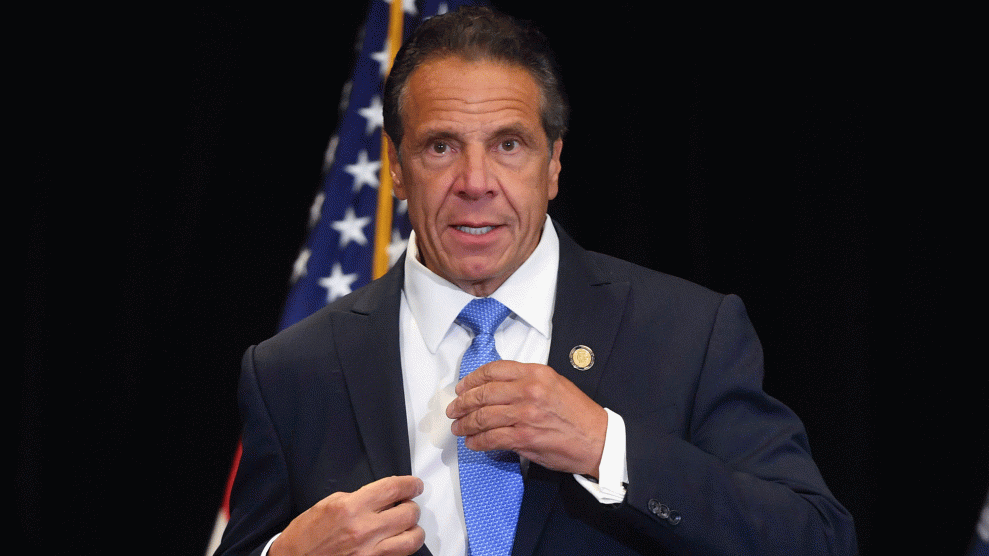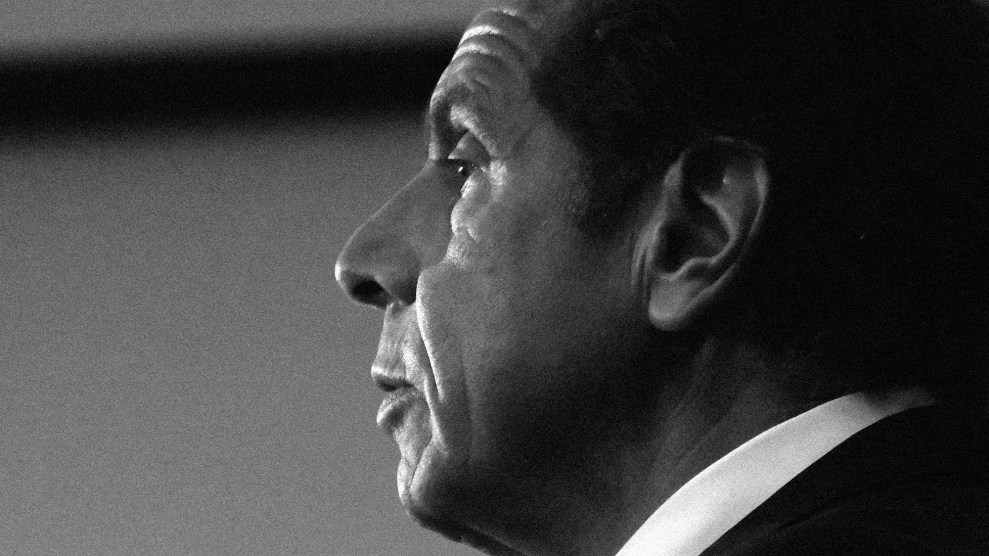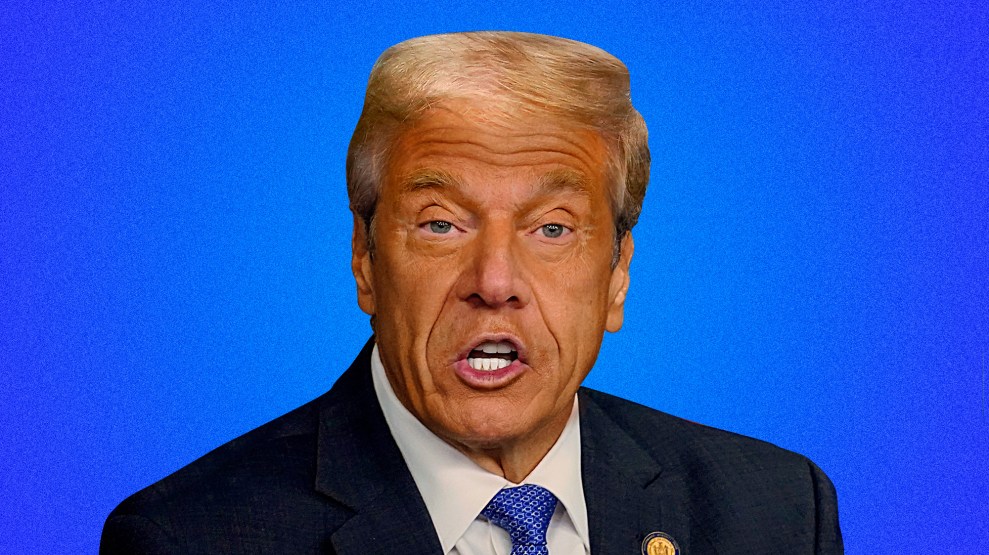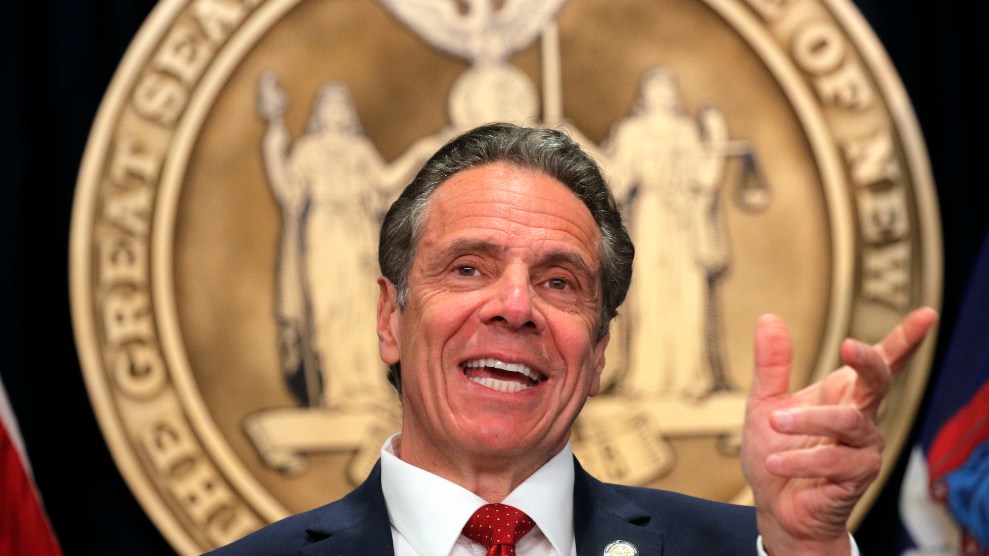
zz/NDZ/STAR MAX/IPx/AP
For the latter part of his political career, Rep. John Lewis’ name was a sort of crutch that cynical politicians reached for in order to help themselves forward. John McCain, who once voted against making MLK Day a holiday, said Lewis was one of “three wise men” he’d consult with if elected president. Kyrsten Sinema voted for Lewis—her “hero”—to be speaker of the House, so that she could tell people she hadn’t voted for Nancy Pelosi. When the congressman died in 2020, Marco Rubio tweeted that “It was an honor to know & be blessed with the opportunity to serve in Congress with John Lewis a genuine & historic American hero.” Attached was a photo of Elijah Cummings.
And so it was that on the eve of the 57th anniversary of Bloody Sunday, when the late congressman was beaten on the Edmund Pettus Bridge in Selma, Alabama, former New York Gov. Andrew Cuomo invoked Lewis in support of his own political rehabilitation tour.
“Let’s make some good trouble,” Cuomo told a church congregation in Brooklyn, echoing Lewis’ motto. He repeated the message to his political campaign committee’s email list a few hours later.
Cuomo, who resigned last year after numerous women accused him of sexual harassment, is mounting a comeback. His campaign, which never actually disbanded, is spending $369,000 on ads attempting to clear his name. He won’t rule out a future run for office. And the address at a Crown Heights church, whose pastor is a longtime ally, offered the clearest glimpse yet of the argument Cuomo will deploy if he seek election again: He was a victim of cancel culture by opponents of real change.
“If you want to cancel something, cancel the federal gridlock, cancel the incompetence, cancel the infighting, cancel crime, cancel homelessness, cancel education inequality, cancel poverty, cancel racism,” Cuomo said. “Be outraged, but be outraged at what really matters, and what really matters is what matters to you.”
If you want to cancel something — cancel the federal gridlock, cancel the incompetence, cancel the infighting. Cancel crime, cancel homelessness. Cancel education inequality. Cancel poverty. Cancel racism.
Be outraged, but be outraged at what really matters pic.twitter.com/eyQ0YuV4dN
— Andrew Cuomo (@andrewcuomo) March 6, 2022
There is an obvious implication here, that Cuomo believes that what he was accused of doing to various women who worked in his vicinity—and what a state assembly committee found “overwhelming evidence” for—should not really matter to people he didn’t personally harass. That is a bleak assertion, compounded by the fact that he went to a literal church to make it. Why should the most powerful person in the state be held to a standard so low that subway rats couldn’t crawl beneath it?
But people weren’t just outraged about how Cuomo treated women in his professional orbit. The story that set in motion his political downfall concerned a matter of life and death—his administration’s attempt to cover up the death toll from his decision to send Covid-19 patients back into nursing homes early in the pandemic. Cuomo’s office went to great lengths to hide the true cost of that policy, manipulating the data to sweep those deaths under the rug. All the while, he used the suffering of his constituents to burnish his own national brand—collaborating with his now also-disgraced brother, Chris, on nightly segments on CNN; signing a $5 million book deal which he enlisted state employees to help him write; and turning his press conferences into a sort of weird kitsch.
When Ron Kim, a Democratic assemblyman from Queens, challenged the governor’s conduct, Cuomo threatened to “destroy” him. The allegations about Cuomo’s behavior followed the revelations about Cuomo’s cover-up; they’re part of the same story—the bullying deceptively advertised as leadership, and the privileged sense of impunity with which he operated.
“Cancel the incompetence,” Cuomo says—just not his.

















